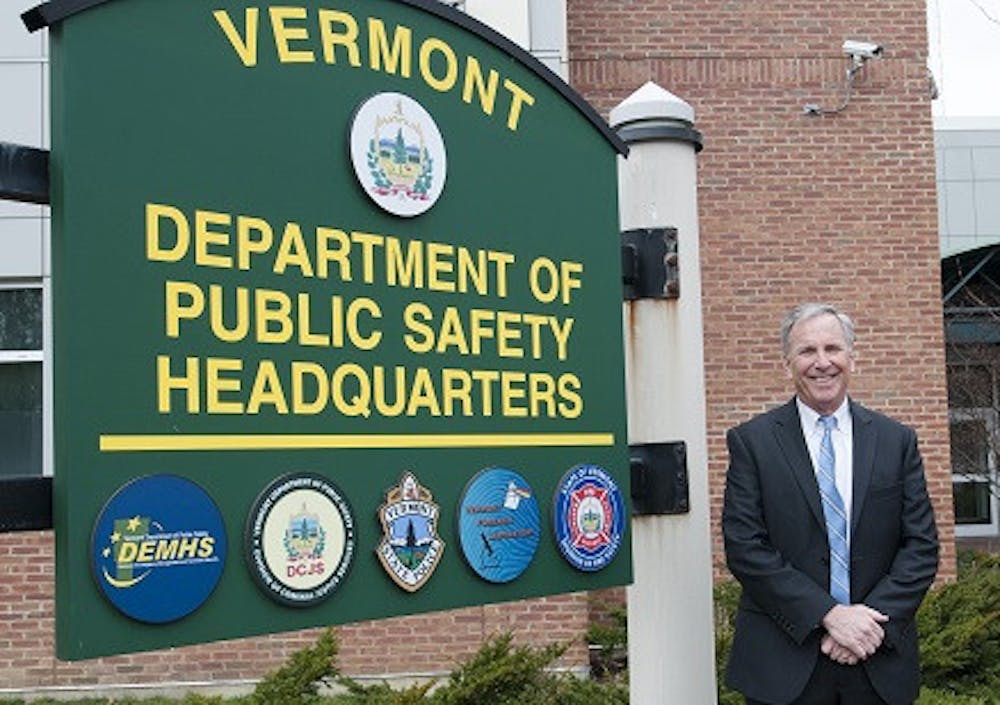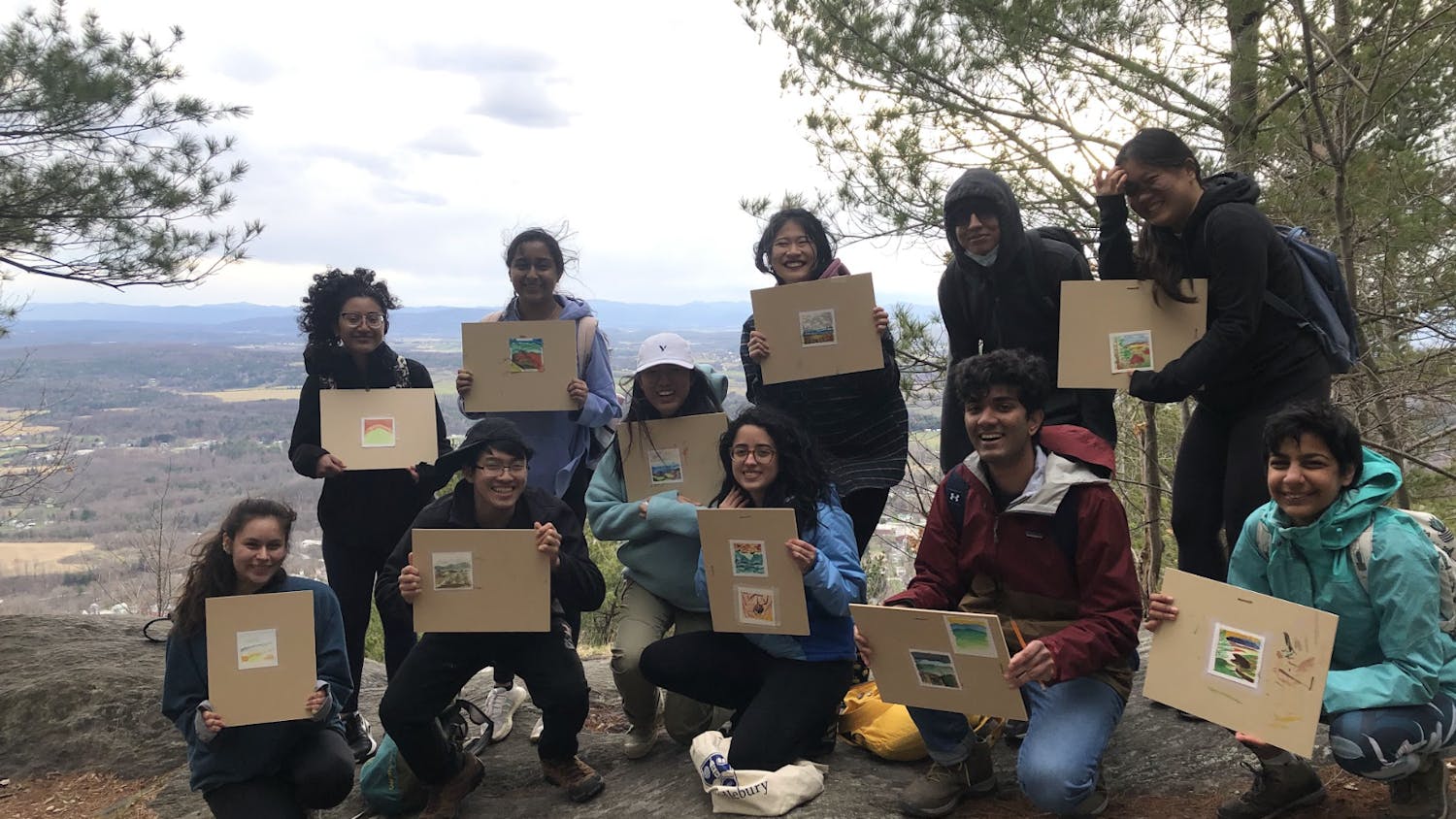The Vermont Department of Public Safety commissioner Thomas Anderson and the State Police Advisory Commission acquitted Trooper Justin Thompson of any wrongdoing in his stop of a New York rabbi and his family, according to a joint statement issued Friday, Sept. 29.
Late on the night of Aug. 8, Rabbi Berl Fink and his family were pulled over by Thompson, held at gunpoint and handcuffed while on their way through Fairlee, Vermont, to a vacation in New Hampshire.
According to VTDigger, the vehicle had been stopped for nearly 40 minutes before Thompson issued Fink a citation for attempting to elude police. Thompson clocked Fink at 83 mph in a 65 mph zone on Interstate 91 in Thetford, Vermont. Thompson put on his lights, but Fink, despite putting his blinker on to signal stopping, failed to pull over for four miles.
According to the commissioner and advisory commission’s joint statement, Thompson’s decision to draw his gun when approaching the vehicle was informed by the high-risk stop protocol. The joint statement describes the situation as a “high-risk stop” because “the location of the stop was in a rural area late at night (12:09 a.m.), there was a lack of immediate back-up in the area, the vehicle failed to stop after the cruiser’s lights and siren were activated for over 4 miles, [and] the actions of the occupants were suspicious.”
According to the joint statement, officers at the Vermont Police Academy are trained in high-risk stops “to issue verbal commands from a position of cover at their police cruiser and have their firearm drawn during the removal process.”
The incident left the family “traumatized and fearful of travel,” according to New York Assemblyman Dov Hikind. Hikind questioned whether anti-Semitism played a role in the incident. The relevance of police discrimination and brutality in the U.S. right now raises this vein of skepticism.
“My constituents’ dress made it clear that they were Hasidic Jews, a sight that may be uncommon in Vermont but one that is hardly a crime,” Hikind told VTDigger. “While it would be difficult to mistake the Fink family as people who might pose a danger to police officers, they were subjected to having guns pointed at them.”
Fink’s son spoke about the incident to The New York Times on Monday, Oct. 2.
“We’re talking about normal people. What in the world are you doing to them? It’s out of hand. This shouldn’t have happened in any state in the United States of America.”
The joint statement maintains that bias or profiling did not play a role in the stop on the grounds that since “it was dark outside when the stop was conducted, trooper Thompson could not reasonably see or identify any personal characteristics of the occupants inside the vehicle at the time he made the decision to conduct a high-risk motor vehicle stop.”
In the 40-minute video captured by Thompson’s dash cam, Fink is ordered to “get out of the car” and keep his hands where they can be seen, while Thompson approaches him with his gun drawn. Fink is then forced against the trunk of the car and handcuffed. Throughout the video, one can hear the muffled voices of Fink’s family still inside the car.
Another officer arrived at the scene later and ordered Fink’s son and wife out of the vehicle and handcuffed them.
The video captures Fink’s wife, Sarah, saying “I’m petrified, what do you want from us?” She too is then handcuffed and asked if she possesses any weapons. After she denies this, she is searched.
In the video, Fink says he has been stopped before but never was he “treated like this.”
Thompson recorded their names and addresses and issued Fink a citation for attempting to elude police. Thompson informed Fink that he needed to appear in Orange County Superior Court on Sept. 20, and when Fink informed the officer this date fell within the holiday of Rosh Hashanah, Thompson replied that he would have to appeal to the court to change the date. The date for Fink’s court appearance has since been changed to Oct. 18.
According to the Vermont State website, the process of becoming a Vermont state trooper entails background checks, polygraph tests, possession of a high school diploma or GED, registration with the Selective Service System, graduation from the police academy and psychological evaluations. Among these requirements is also a training through the Vermont Criminal Justice Training Center. Courses offered include “Interpersonal Violence,” “Investigations” and “Motor Vehicle and Highway Safety,” among others. All officers must be certified by the Criminal Justice Training Council.
The joint statement issued by the advisory commission and VDPS commissioner maintained that “At no time was Trooper Thompson rude or unprofessional in his conduct with the driver or occupants.” The joint statement also quotes the Vermont State Police code of conduct: “policies require every trooper to treat all members of the public with respect, dignity and fairness at all times.”
Vermont Trooper Acquitted by Joint Panel

Comments



